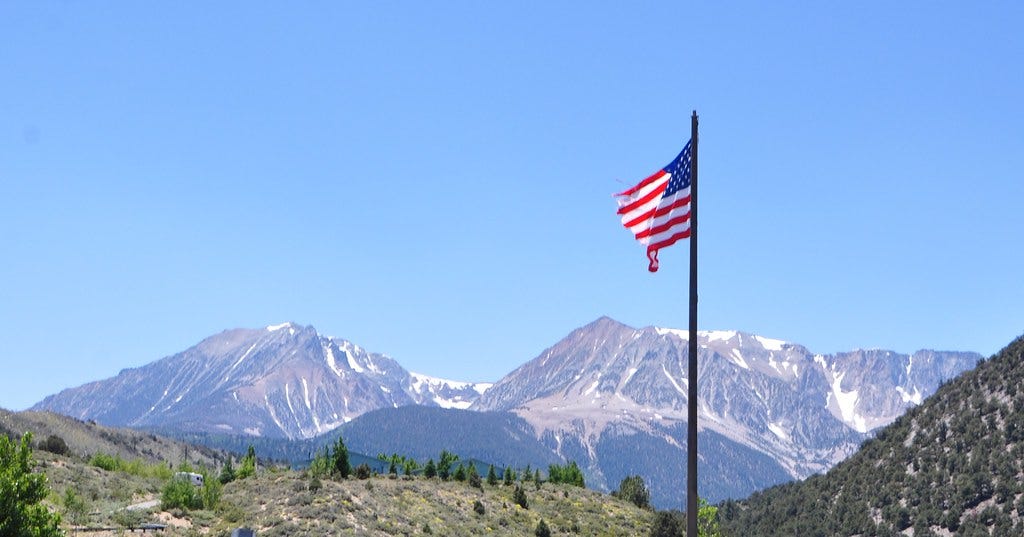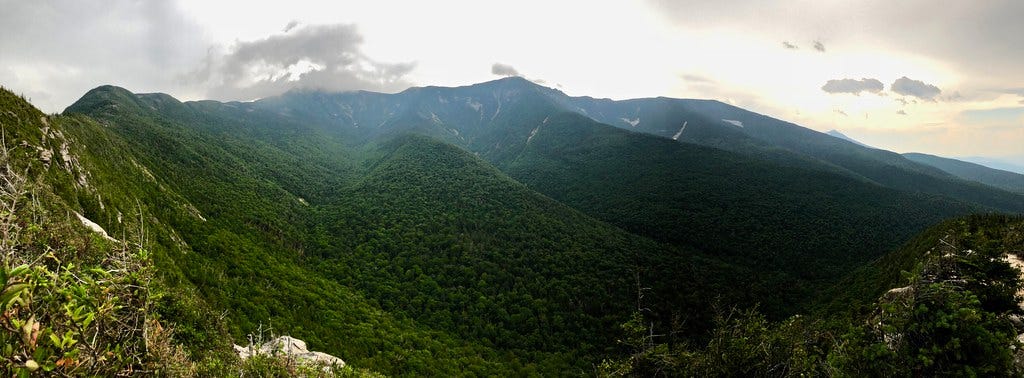I’ve spent the better part of three decades scrambling up rock stairs and slipping on roots in the backcountry. And of all the stuff that I’ve seen out there, one of the things that haunts me most, after all these years, is a photograph that was stapled to a tree.
It was fall of 2017. My dad and I were scaling Mount Lafayette—a 5,249-foot landmark in New Hampshire’s White Mountains which is named after the General Lafayette and is consequently popular among French-Canadian hikers. (You take your national pride wherever you can find it, I guess!) We were taking the Old Bridle Path and we had just completed the transition from yellowy and auburn deciduous woods to the angular boreal ridgeline that you have to climb to get to the summit cone of the mountain. And that’s when I saw the photo, attached to the thin trunk of a white spruce tree. It was an image of a young woman at home, beaming, and the photo print contained a few lines text explaining that she had been missing for upwards of a month, with no leads from the authorities. I stopped my dad and we spent a few minutes looking at the photo in silence, trying to fill in the blanks between this preserved yet fading moment and the terrible ambiguity of the present. As we resumed hiking, we found two more of these photos stapled to trees further up the trail—same image, same words, same silence.
The backcountry, as many of us know it today, is a place we visit to get away from our anxieties and tribulations. Just imagining the amount of anguish and desperation that must have compelled someone to put up MISSING photos in the middle of the White Mountain National Forest made the hairs on my back stand up. The odds of a passing hiker knowing anything about the disappearance of the woman in the picture were so slim that I wondered if the intent of the person who stapled the photos to those trees might have been more spiritual—an act of raw expression, in a place we disassociate from the pain of the “real world” that awaits beyond all those curtains of boreal trees.
When one of those pains makes its way into the backcountry and becomes visible, it’s a stark sign that things have reached a boiling point, for an individual or a community.
Last week, something happened in Yosemite National Park that offered a much bigger confirmation that things are getting seriously darker and stormier. In the wake of Elon Musk’s DOGE crew firing over 1,000 National Park Service employees—in the name of “efficiency,” but quite obviously in the service of paying for another big tax cut for the billionaire class—a group of Yosemite employees climbed to the top of El Capitan and hung an upside-down American flag from the summit. The inverted flag is a symbol of the United States experiencing a moment of profound distress, and the fact that this happened in Yosemite National Park of all places has the outdoor community buzzing at a volume level not heard in recent memory. And I think I know why that’s happening.





